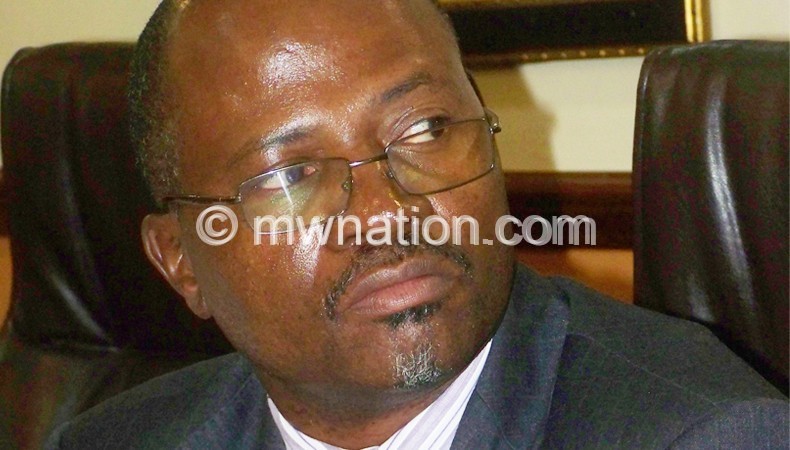‘Faith is forcing me on homosexuality’
After President Peter Mutharika appointed Malawi Human Rights Commission (MHRC) members, the Reverend Patrick Semphere was appointed its chairperson. Our staff writer EDWIN NYIRONGO talked to him about his vision for MHRC and other matters. Excerpts:
How did you feel when you were informed about the election as MHRC chairperson?

I felt deeply humbled, embracing the moment with a sense of fulfilment and appreciation considering that fellow commissioners could trust me for such a challenging role. At the same time, a sense of apprehension knowing that as a leader, I am accountable for the success or failure of the commission. I am learning that a mix of the two is healthy to ensure my optimal performance.
What will be some of your responsibilities as chairperson of MHRC?
My role includes directing the convening and chairing meetings of the commission, providing regular supervision of the commission, serving as a spokesperson of the commission on matters determined by the commission, undertaking high-profile stakeholder engagements and liaison, upraising the President of the Republic, Cabinet ministers, the Speaker of the National Assembly and the Chief Justice on matters determined by the commission, representing it at meetings of the Network of the African National Human Rights Institutions [NANHRI] and Global Alliance of National Human Rights Institutions [GANHRI] as well as monitoring the performance and conduct of other members of the commission.
There are human right issues such as the Nsundwe rape and others that are longstanding and need to be resolved. What will be your roles on this?
Part of our orientation as a new cohort is to deal with a huge backlog of the two years that the commission was not constituted. This includes the Nsundwe matter. We will look at all the reports that were compiled, the recommendation made and will follow-up with relevant authorities regarding whatever action needed to be taken.
Some quarters say MHRC is ‘a toothless dog; barks but does not bite’. What do you say to that?
It all depends on what you mean by biting. If we mean prosecuting the suspects, then the commission cannot bite because the law does not give it judicial powers that would allow it to enforce our recommendations. This, however, does not render the commission toothless because its mandate covers a lot of areas that uniquely position it and this has hitherto not been fully utilised.
The commission, for instance, has duties and responsibilities to advise and assist government and other authorities to enable them comply with human rights. It also has a duty to provide information and carry out research. The commission also engages in quiet diplomacy on issues of national importance and we have seen some calamities averted as a result of the commission using this approach.
Then there are others who say the fact that you are appointed by the President compromises your independence. What do you say about this?
The President has constitutional powers to make these appointments, but this should not necessarily erode the independence of the commission. After all, we take an oath to transact our duties ‘without fear or favour’. It is possible to serve Malawians without being unduly influenced and this calls for a sense of integrity. Consider the judges in the Judiciary. They are appointed by the President, but are able to pass judgements independent of the whims of the appointing authority.
What type of human rights abuses are you going to concentrate on?
Malawi has experienced an escalation of a number of human rights abuses. These include mob justice, domestic violence, political intolerance, violence against persons with albinism, killings arising from myths of blood sucking in some part of the country, human trafficking and many others. We will apply our efforts in these areas among other emerging issues,
Lastly, you are known to be against homosexuality. As a human rights issue, how then are you going to handle cases fairly that are against your will?
My personal position on homosexuality is informed by my Christian faith and the Holy Scriptures. The appointing authority did not see this as a threat to the human rights discourse in Malawi. According to the Human Rights Commission Act, members of the commission are expected to be “representative of Malawian society”; and as we all appreciate, our society is not homogeneous. The safeguard in the commission is that we make our decisions in a collegial manner, which means that no position can be arrived at singlehandedly. That is the essence of democracy.





